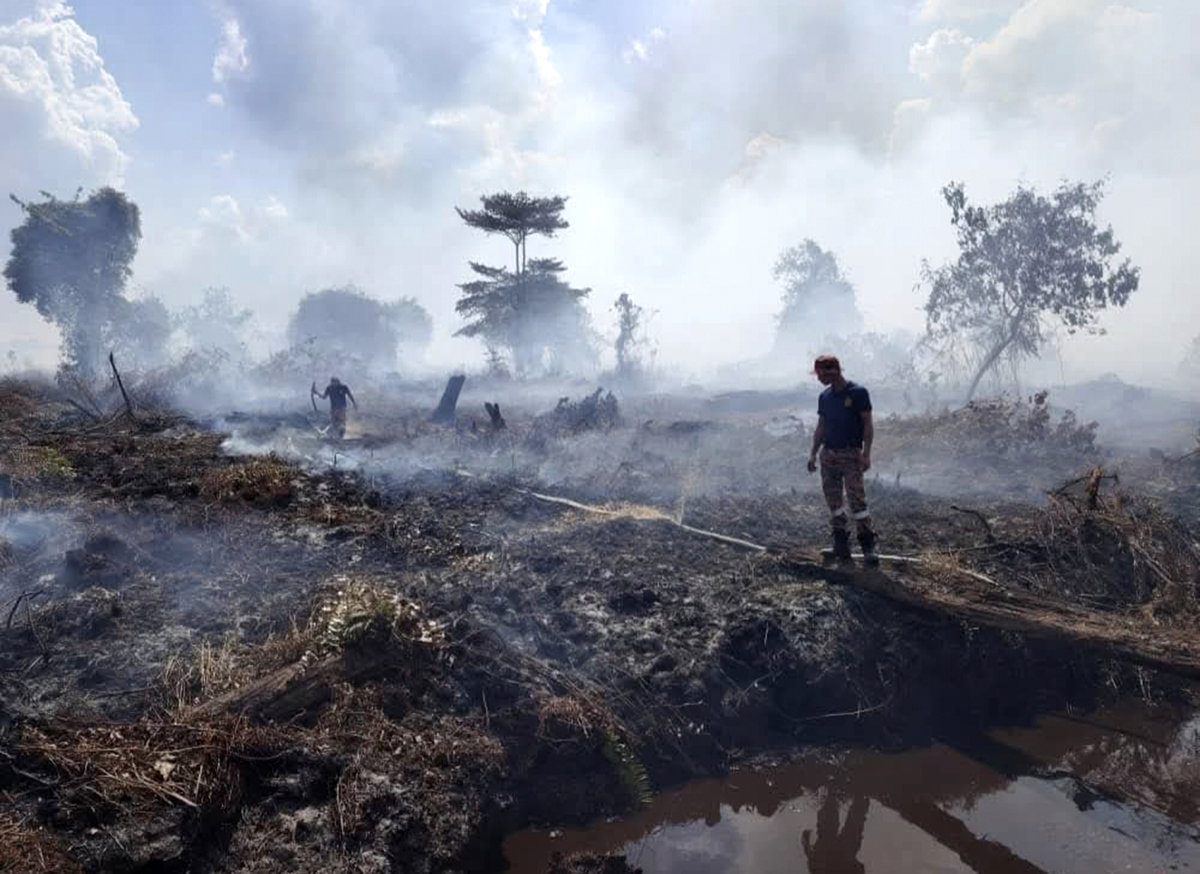KUCHING: A massive peatland fire in northern Sarawak has entered its ninth day, with more than 76ha still burning in the Marudi district, threatening nearby agricultural estates and forest reserves.
The Sarawak Fire and Rescue Department confirmed yesterday that firefighters remain on the ground, battling the blaze with water jets as it spreads through peat-rich forest and plantation areas.
“Today is the ninth day of the Marudi fire. The latest estimate is 76.72ha are still burning,” the department said in a statement.
The fire began in a pineapple and oil palm plantation near Logan Unga, located along the Marudi–Miri road, about 60km inland from Miri.
Last week, the Air Pollutant Index (API) in Marudi surged beyond the unhealthy level of 154 due to the blaze.
The Marudi fire is one of several active hotspots across Sarawak, which has been on red alert for haze and wildfires for over two weeks.
Firefighters have been working around the clock to contain dozens of ground fires across the state.
In Kota Samarahan, a landfill fire continues to burn across three hectares, while additional hotspots – covering 5ha collectively – were reported in Sarikei, Sibu and Betong.
In Kuala Baram, just 25km from Miri, a peat fire erupted four days ago near the Pan Borneo Highway, close to the Sarawak–Brunei border.
At its peak, the fire engulfed 16ha before being extinguished using the total flooding method.
To put the scale into perspective, a single hectare is roughly equivalent to 2.5 acres or more than two football fields.
Fires of this size can be detected by satellites as red hotspots on orbiting imagery.
State disaster management committee chairman Datuk Amar Douglas Uggah said on Thursday that 220 hotspots had been recorded across Sarawak in the past two weeks.
In response, the department’s Air Wing has carried out aerial water bombings in Mukah and Marudi, where thick vegetation, dry conditions and inaccessible terrain have hampered ground efforts.
Authorities continue to urge the public to refrain from open burning, warning that dry weather and combustible peat soil significantly increase the risk of fast-spreading fires and haze.









